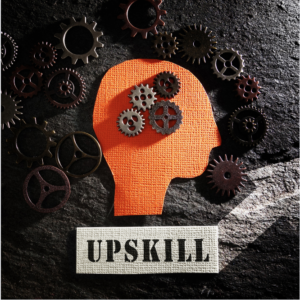Law firms band together to fight depression
Some of Australia’s top law firms have joined forces to tackle the alarming rate of depression within the legal profession.
According to research, one in three lawyers will suffer depression to the point of debilitation during the course of their career.
Freehills, Mallesons Stephen Jacques, Allens Arthur Robinson, Clayton Utz, Blake Dawson and the College of Law have shared resources to create the program resilence@law to break down the stigma of depression and assist lawyers to recognise the early signs of the illness so they can seek help.
The firms held a special briefing for HR professionals from other professions and industries this week to explain the program. It includes a DVD featuring interviews with senior and junior lawyers who have experienced depression.
Senior lawyers and HR executives officially launched the program in March and travelled to law firms around the country, including country and regional areas, to explain it to staff.
As part of the initiative, the College of Law will teach a module on depression from the new academic year in 2011. The module will be delivered by a mental health expert and will include a screening of the DVD.
Gareth Bennett, HR Director of Clayton Utz and one of the drivers of resilence@law, told CareerOne that managing partners were on board right from day one of project discussions 18 months ago believing it was “the right thing to do” from both a human and business perspective.
“The managing partners are aware that the services they offer are similar so it is their people that give them their competitive advantage,” explains Bennett.
Bennett says the lawyers who shared their stories on the videos were amongst the bravest people he had ever met and their candour was vital to breaking down the stigma of depression.
Matthew Stutsel, a partner at Freehills, is featured on the video explaining how his depression progressed to the point where he planned suicide before he sort treatment.
Speaking at the briefing he told HR managers that they need to monitor the use of their employee assistance services and ask questions if they are not being used.
On video Stutsel says lawyers are trained “to be in control of our surroundings, of the matters we are working on and of our own emotions.”
He explains that when he was not able to cope rather than questioning why that was he told himself to just buck up.
After hitting crisis point Stutsel was persuaded by a friend to seek help and has resumed his successful career with “fresh” enthusiasm and greater insight into people.
Dr Ian Chung a psychiatrist working with LawCare says that depression usually develops in depression in three stages with the early signs often ignored.
“Initially there is a warning stage, some palpitations, some sweatiness, some loss of concentration some sleep disturbance…sadly they are commonly ignored [or] denied,” Chung explains.
He says the condition then progresses to the second stage where the ill person will attempt to adjust to these new conditions.
“So to speak up, the body says ‘this person is going to ignore all my warning signs so I am going to have to set all the settings to a higher level let’s make the blood pressure a little bit higher, the pulse rate a bit higher, the blood sugar a bit higher’ – all so they can keep functioning and then they begin to get unwell both emotionally as well as physically.”
Chung says that if the patient still doesn’t seek help they will develop “a sense of helplessness and hopelessness …and that is depression.”
At this stage people often withdraw from family and friends and their work performance suffers.
“There is this misguided sense of pride that they are somehow lesser if they have something wrong with them that somehow this means they are not strong enough –they are weak.
“That is completely incorrect. True strength is when one can look at oneself and see ‘I am not travelling so well.”
“In all the time that I have been in practice the greatest cause of people failing to do something is because of fear. They clearly can’t solve this problem so they need some sort of external input. Of course going to someone that they can trust someone close someone who they can open up to and get support would be a great start.”
Those behind resilience@law hope the open nature of the program and having senior lawyers talk about their recovery will help employees feel they can reach out and get help before their illness becomes too much for them to handle.
Article from CareerOne.com.au



